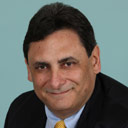Stephen Treglia

April 30, 2013 | New York Law Journal
Another Search and Seizure Standard Gets InfringedIn his Cross-border Concerns column, Stephen Treglia, legal counsel at Absolute Software Corporation, writes that in a recent Ninth Circuit decision, advanced technology upset another long-standing applecart: the relatively unfettered ability of border agents to conduct warrantless searches of the contents of digital devices.
By Stephen Treglia
13 minute read

November 27, 2012 | New York Law Journal
Curiouser and Curiouser: 2012 Brought Three Notable DecisionsIn his E-Communications column, Stephen Treglia, a former Nassau County prosecutor and legal counsel at Absolute Software Corporation, writes that probably the most insightful observation in any of these three court decisions was made by the two judges in 'Jennings' who believed the definition of "electronic storage" should retain the "traditional interpretation" of the DOJ.
By Stephen Treglia
13 minute read

December 02, 2011 | Legaltech News
Are International Cybercrime Laws a Hopeless Fantasy?Because of the inability of international bodies to resolve differences, attorney Stephen Treglia finds that the threat of computer network cybercrime will remain a problem into the future.
By Stephen Treglia
11 minute read

May 29, 2012 | New York Law Journal
A Key Raises Fifth Amendment IssuesIn his Constitutional Issues column, Stephen Treglia, a former prosecutor and legal counsel at Absolute Software, analyzes a line of cases where prosecutors sought court orders to compel suspects or defendants to reveal information necessary in order to access what is the equivalent of a locked computer.
By Stephen Treglia
12 minute read

August 28, 2012 | New York Law Journal
EU's Brave New World of Global Privacy Regulation?In his Cross-Border Concerns column, Stephen Treglia, legal counsel at Absolute Software Corporation, writes that when any topic receives vociferous attention in the general public, the law typically begins to take notice and adapt; lawmakers and policy makers have already demonstrated this in the first half of 2012 alone by advancing new legislation and regulations in support of privacy.
By Stephen Treglia
12 minute read

March 30, 2011 | Legaltech News
The U.S. Supreme Court's Cautious Approach to 'Quon'Jeff Quon, an Ontario, Calif., police sergeant, probably never imagined that a reprimand for his inappropriate use of a city-owned pager would be addressed by the U.S. Supreme Court. The Court set out to address whether an investigation of pager records violated the Stored Wire and Electronic Communications Act. Was their decision a victory or defeat for Quon?
By Stephen Treglia
11 minute read

August 30, 2011 | New York Law Journal
The Bumpy Legal History of GPS DevicesStephen Treglia, legal counsel at Absolute Software Corporation, reviews case law on tracking publicly moving objects, from the U.S. Supreme Court's 1983 holding allowing evidence of drug production found by following the signal of a beeper installed in a five-gallon drum of chloroform, through U.S. v. Maynard, which the Supreme Court will hear this coming term, where the D.C. Circuit found 28 uninterrupted days of GPS monitoring of a defendant's movements violated his rights.
By Stephen Treglia
12 minute read

May 19, 2005 | Law.com
'Bach' RevisitedThe name Bach evokes images of the 18th-century composer known for his imaginative and inventive work. Nearly three centuries later, the name Bach again stands for newly emerging theories, but this time in the arena of computer crime case law. Attorney Stephen Treglia explains how Dale Robert Bach of Minneapolis has been the cause of two significantly ground-breaking decisions.
By Stephen Treglia
11 minute read
June 03, 2011 | Corporate Counsel
The Fourth Amendment in the World of E-CommunicationsThe past 12 months have seen an unprecedented shift in the law as it pertains to electronic communications. What makes this recent evolution particularly dramatic are the scope of the shift, the fact that the shift has affected multiple levels of e-communications, and that each level of the evolution has headed in the same direction -- toward increasing the restrictions that prevent law enforcement from gaining evidence from e-communications.
By Stephen Treglia
12 minute read

July 19, 2005 | New York Law Journal
Sunrise the SunsetsStephen Treglia, chief of the Technology Crime Unit in the Nassau County District Attorney's Office, writes that while the USA Patriot Act's passage generated considerable controversy, certain safeguards were included to allow Congress and the public to subsequently reconsider many of the act's provisions, presumably at a time when the immediate impact of terrorist threats to the safety of our country and the world in general was less on our collective minds. That "later time" is now.
By Stephen Treglia
11 minute read
Trending Stories
- 1On the Move and After Hours: Brach Eichler; Cooper Levenson; Marshall Dennehey; Archer; Sills Cummis
- 2Review of Ex-parte orders by the Appellate Division
- 3'Confusion Where Previously There Was Clarity': NJ Supreme Court Should Void Referral Fee Ethics Opinion
- 4How Amy Harris Leverages Diversity to Give UMB Financial a Competitive Edge
- 5Pa. Judicial Nominee Advances While Trump Demands GOP Unity Against Biden Picks
More from ALM
- Legal Speak at General Counsel Conference East 2024: Match Group's Katie Dugan & Herrick's Carol Goodman 1 minute read
- Legal Speak at General Counsel Conference East 2024: Eric Wall, Executive VP, Syllo 1 minute read
- Legal Speak at General Counsel Conference East 2024: Virginia Griffith, Director of Business Development at OutsideGC 1 minute read



